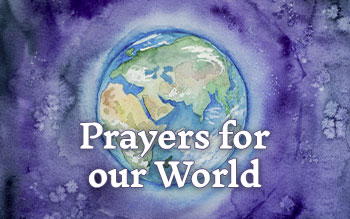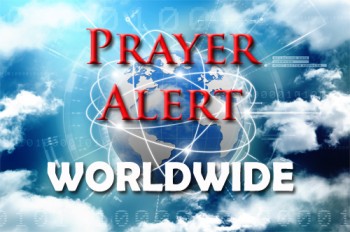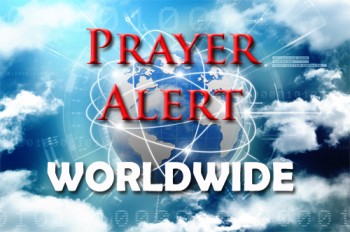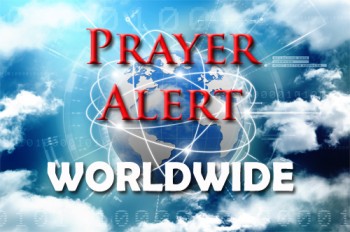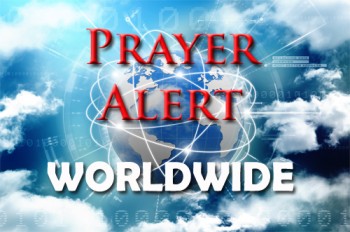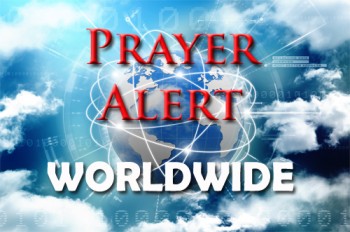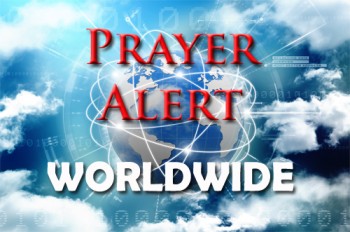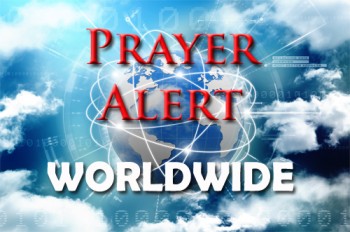Displaying items by tag: violence
India: Death toll from religious violence rises to 38
NEW DELHI: Tensions remained high in India's capital on Thursday (Feb 27), as thousands of riot police and paramilitaries patrolled streets littered with the debris from days of sectarian riots that have killed 38 people.
An uneasy calm has descended over the affected northeast fringes of the Indian capital, punctuated by sporadic outbreaks of violence overnight.
The unrest was the latest bout of violence over Prime Minister Narendra Modi's citizenship law, which triggered months of demonstrations that turned deadly in December.
India's parliament has passed a bill which offers amnesty to non-Muslim illegal immigrants from three neighbouring countries. The bill provides citizenship to religious minorities from Pakistan, Bangladesh and Afghanistan.
The government, led by the Hindu nationalist Bharatiya Janata Party (BJP), says this will give sanctuary to people fleeing religious persecution. Critics say the bill is part of a BJP agenda to marginalise Muslims.
The Citizenship Amendment Bill (CAB) passed the upper house of parliament, where the BJP lacks a majority, by 125 votes to 105 on 11 December. It had cleared the lower house two days earlier.
The bill has already prompted widespread protests in the north-east of the country which borders Bangladesh, as many people there say they will be "overrun" by immigrants from across the border.
Sunil Kumar, director of the Guru Teg Bahadur (GTB) Hospital, said on Thursday it had registered 34 deaths, adding that "all of them had gunshot injuries".
Many of India's 200 million Muslims fear the citizenship law - combined with a mooted citizens' register - will leave them stateless or even sent to detention camps. They and critics see Modi's right-wing ruling party, which is linked to once-banned militaristic Hindu group RSS, as wanting to turn officially secular India into a Hindu nation.
His party has denied the allegations but in recent weeks BJP politicians, including in an ugly recent campaign for Delhi elections, have called the demonstrators "anti-nationals" and "jihadists".
The Evangelical Fellowship of India in a statement said: 'The Christian community in India, and especially in the Delhi region, is deeply shocked and pained at the bloodshed, carnage and mayhem let loose on the streets, homes and mosques of the national capital. The Evangelical Fellowship of India condemns this reprehensible violence that has so far resulted in 23 deaths, as the work of vested political interests and forces of hate.
'We appeal to the people of Delhi to maintain peace, and not to give in to vicious vitriolic fed by rumors and spread through social media. We must not let hate win.
'EFI calls the Church at large to uphold the people of Delhi in our prayers. This Ash Wednesday, as we begin the season of Lent, let us pray for peace and harmony to prevail in our land, and for violence to cease.
More at: https://www.channelnewsasia.com/news/asia/tensions-high-in-new-delhi-as-death-toll-from-sectarian-riots-12478078 More at: https://www.bbc.co.uk/news/world-asia-india-50670393
More at: http://efionline.org/articles/350/20200226/efi-statement-on-the-violence-in-delhi.htm
Syria: violence driving 700,000 away
Syrian forces backed by Russian fighter jets recaptured key government positions as Turkey warned of swift revenge if more of its troops are attacked. Syria's army is trying to capture all of the country's last rebel-held territory. Consequently, more people have fled from fighting in Syria over the past 10 weeks than at any other time in the nine-year-old conflict. Pray for all the internally displaced Syrians from western Aleppo’s countryside, fleeing with the only belongings that they can carry, uncertain if they will ever return to normal life. Pray for those who have sheltered in the city of Idlib. On 11 February two UN agencies said it could become a graveyard if hostilities continue. Currently Syrian government forces are shelling their way northwards. Turkey, which backs the rebels and is fearful of additional refugees, has retaliated militarily. Displaced civilians are caught in between. 700,000 people have fled since December, mostly women and children.
South Africa: demobilising ‘child soldier’ gangs
Hanover Park is a violent gangland neighbourhood of unemployed young men where even army deployment failed to stop shootings. Gangsters as young as 12 operate within a contested jigsaw of fiefdoms in the historically ‘coloured’ township - 15-minutes from well-heeled central Cape Town. Mary Bruce points to identical three-storey flats ‘That’s the Ghetto Kids. Over there are the Dollars, and this side are the Americans. They fight everyone.’ A couple of hundred metres towards the taxi rank the ‘turf’ yields the Mongrels and Laughing Boys gangs. Up to 500 youths in Hanover Park could be classed as ‘child soldiers’. Nearly 7,000 people in Hanover Park are active within the myriad street gangs that have their roots in a prison gang culture on the Western Cape that stretches back over 100 years. Pray for ‘Ceasefire’, NGO violence interrupters working to nip trouble in the bud and help gangsters to quit.
US / Mexico: drug-smuggling tunnels
Since 2015 tunnels have run under the border from Mexico to America. Donald Trump has made building a border wall one of his key priorities to tackle illegal immigration and drug trafficking. On 30 January, US officials said that they had discovered the longest smuggling tunnel ever. Stretching for 1,313m, it had a lift, rail track, drainage, air ventilation systems and high voltage electrical cables. The passageway connected an industrial site in Tijuana to the San Diego area in California. Mexico's Sinaloa cartel, one of the largest drug-trafficking organisations in the world, operates in the area. Its founder and long-time leader, Joaquin ‘El Chapo’ Guzman, is serving life in prison in Alcatraz. Mexico's murder rate rises annually - 2019 was the bloodiest year on record, with 34,582 killings. Much of the violence is linked to criminal gangs who engage in drug trafficking, kidnappings and extortion of local businesses and farmers. See
Sub-Saharan Africa: violent Islamist militancy spreads
In Sahel and sub-Saharan Africa, the rise of Islamist militancy is a challenge to Christians and also to the existence of states and governments in the region, and thus to the rest of the world. The overthrow of Libya’s President Gaddafi and the power vacuum in Libya brought a wave of Islamist influence backed by money, weapons, drugs and organised crime that is spreading across Sub-Saharan Africa. In weak or ‘fragile’ states, where rule of law and governance are ineffective, Christian populations are left unprotected. The president of Mali said the very existence of Mali is at risk from jihadists. They exploit ethnic, tribal and socio-economic groups, creating conditions that draw recruits and increase their influence, thus widening the risk to global security. Mali, Burkina Faso, Niger, Chad and Mauritania, backed by France, have a task-force to combat jihadist insurgents. Pray for God to increase their intelligence sources so that they prevent attacks and catch militants. See also Europe article 1.
Democratic Republic of Congo: violence and epidemics
DR Congo is one of the ten poorest countries in the world, coping with violence, disease, hunger, and the mass displacement of people caused by years of civil wars and cross-border conflicts. Partly through impunity and political impotence, conflicts continually flare up in the border areas, and East Congo remains a hotbed of unrest. Measles is a highly contagious disease caused by a virus that attacks mostly children. Left untreated, complications include blindness, brain swelling, diarrhoea, and severe respiratory infections. Congolese health officials say that comprehensive vaccination programmes are the only way to stop the epidemic from spiralling out of control. Ill-informed opposition can derail such plans. Measles has killed 6,000 people in a year, but its severity is overshadowed by the world's second-biggest Ebola epidemic on record - killing over 2,230 so far. Although new infections have slowed recently, the WHO warns that the virus is likely to resurge.
India: intolerance increasing
Across India, there is a rising intolerance towards missionaries, pastors and priests. Violence against Christians has resulted in loss of lives, livelihoods and property. Rights-based organisations have documented over 250 incidents of violence and hate crimes against Christians between January and November. Open Doors states, ‘India continues its violence against Christians; Hindu radicals believe they can attack Christians with no consequences. The view of the nationalists is that to be Indian is to be Hindu, so Christianity is “non-Indian”. Additionally, in some regions of the country, converts to Christianity from Hinduism experience extreme persecution, discrimination and violence. Pray for Christian converts from Hinduism who are pressured forcefully to return to their national religion. Pray for Christians in India to know God’s provision and protection as they preach the gospel in places with anti-conversion laws.’ See also
Hong Kong: chaos and excessive police force
Two protesters are in a critical condition after being shot in violent demonstrations and a pro-Beijing supporter was doused in flammable liquid and set alight after arguing with protesters, who are demanding greater democracy and police accountability. The pedestrian crossing where the first young protester was shot has become a site of considerable tension. He remains in a critical condition. The protester we prayed for last week after falling from a car park has since died. The police also drew firearms from their holsters in two other places but denied reports that they were ordered to ‘recklessly use their firearms’. An independent expert said that Hong Kong’s police watchdog does not have the powers or resources to cope with the scale of protests, and ‘light touch’ body probing by the police at demonstrations has a capabilities ‘shortfall’. Powers to summon witnesses need to meet the task of examining allegations against police. See also
Hong Kong: student casualties
Chow, a university student, fell from the third floor of a car park while fleeing tear gas and suffered a significant brain injury as a result. A third-year journalism student, surnamed Tang, was arrested on 2 November when covering protests in Taikoo Shing. His university’s student union said that when he was arrested, he was wearing his press card and journalists’ association membership card, and had not taken part in any of the frontline protest activities. Pray for police to respect the rights of student reporters and ensure their safety when they are performing their duties. Also, the university has asked the police commissioner for full details about a qualified St John Ambulance first aider student who suffered serious burn injuries after being hit by a tear-gas canister while performing his duties. Students and alumni are demanding that the universities condemn police violence as they handle anti-government protests.
USA: corporations blamed for anti-Muslim violence
The ‘Fanning the Flames’ report published on 31 October said that corporations with global reach in the tech, finance, and media sectors have resourced anti-Muslim individuals and groups both domestically and internationally to create the infrastructure for biased messages and bigotry to spread and thrive. It added that Google, Amazon and Fidelity will promote white supremacy and anti-Muslim bigotry as long as they can make money out of it. Researchers found tech platforms have provided a space for unsafe actors, and their search and recommendation algorithms enabled white supremacist and bigoted propaganda to spread further. The report said, ‘It is concerning that these tech platforms have not created strategies to eliminate anti-Muslim bigotry from their sites.’ Also, Wall Street businesses have provided financial infrastructure and political cover to organisations promoting anti-Muslim prejudice, and financial institutions are investing hundreds of millions in gun manufacturers.
